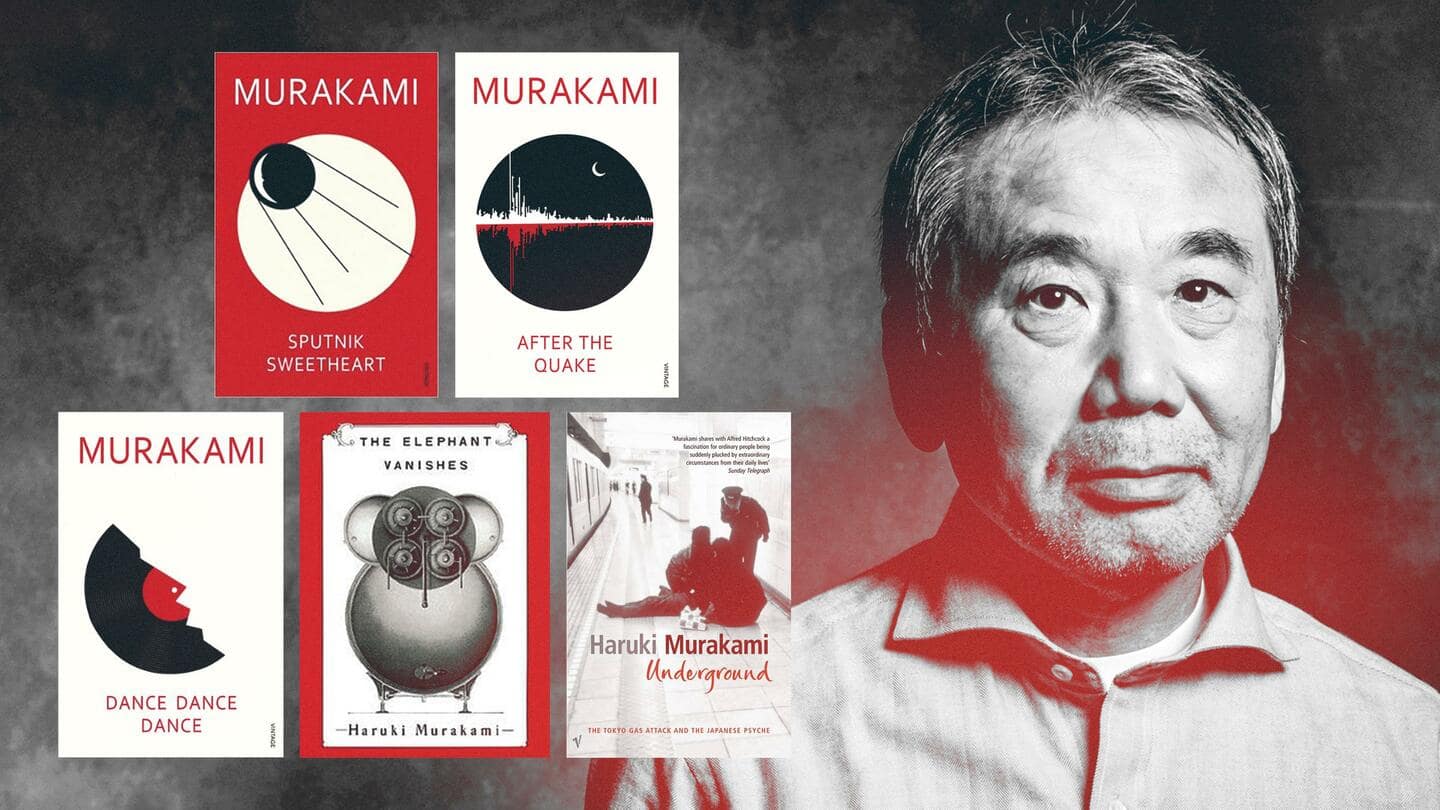
As Murakami announces new book, let's revisit his previous must-reads
What's the story
Japanese author Haruki Murakami is set to release his new novel in April, publisher Shinchosha announced. This is six years after he came up with his last book in 2017 - Killing Commendatore. While we await more information on the book set to be published in Japanese initially, let's take a look at five of his must-read books.
1988
Dance Dance Dance (1988)
Dance Dance Dance is the sequel to A Wild Sheep Chase, although both can be read on their own. This classic and fun read deals with themes of gender, sexuality, loss, and abandonment, as do many of Murakami's other novels. The book was first published in 1988 and is the sixth novel by the author.
1993
The Elephant Vanishes (1993)
The Elephant Vanishes is a collection of 17 short stories. A couple's midnight hunger pangs drive them to hold up a McDonald's. While an insomniac wife wakes up in a twilight world of semi-consciousness, where anything seems possible. In every one of these stories, Murakami makes a determined assault on the normal. Check out more such book recommendations.
1997-1998
Underground (1997-1998)
Underground: The Tokyo Gas Attack and the Japanese Psyche is about the 1995 Aum Shinrikyo sarin gas attack in the Tokyo subway. The book consists of a series of interviews with individuals who were affected by the attack. This non-fiction book deals with the themes of alienation in a highly rational society, and it takes us away from Murakami's typical surrealist writing.
1999
Sputnik Sweetheart (1999)
Sputnik Sweetheart is a story about attraction, desire, and self-discovery. The male protagonist must sit and watch while the girl of his dreams falls for a woman seventeen years senior to her. The characters travel, go missing, and search for each other, as well as themselves. In this novel, Murakami explores themes of sexuality and the psychological turbulence of loving and losing.
2000
After the Quake (2000)
It is a collection of six short stories. All the stories are set at the time of the catastrophic 1995 Kobe earthquake. The central characters in After the Quake live far from the physical devastation. Even though they only witness it on TV or newspaper, for each of them the massive disaster becomes a turning point in their lives.